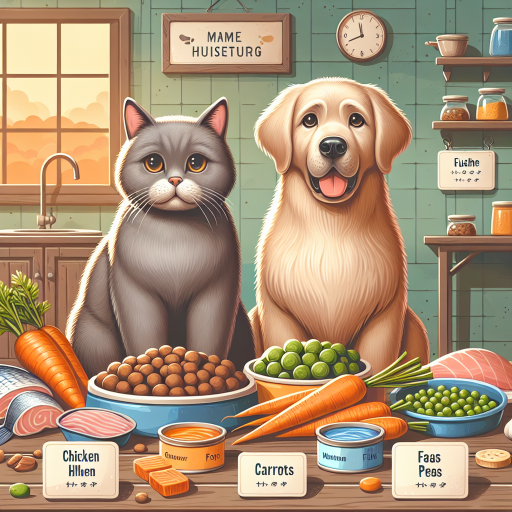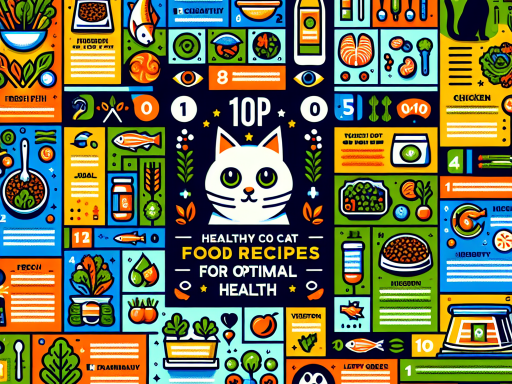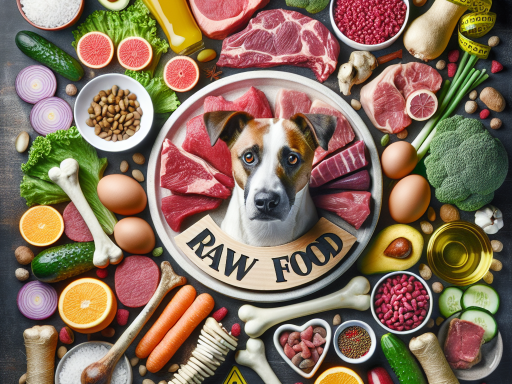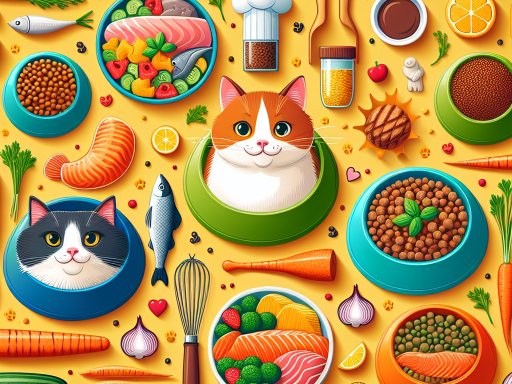I. Introduction to Balanced Homemade Diets for Senior Pets
Hey there, fellow pet lover! If you’re reading this, chances are you’ve got a senior furry friend who means the world to you. As our beloved cats and dogs age, their needs change, and their diet plays a critical role in keeping them happy and healthy. Have you ever considered preparing homemade meals for your senior pet? Let’s dive into the wonderful world of balanced homemade diets tailored just for them.
First off, let’s get one thing straight: making homemade food for pets isn’t just about tossing some leftovers into their bowl. It involves understanding their unique nutritional requirements and ensuring they get all the essential nutrients they need, especially as they age. But don’t worry, we’re here to guide you through it!
Why Consider Homemade Diets?
There are several reasons why you might want to switch to homemade meals for your senior pets:
- Control Over Ingredients: By preparing meals at home, you know exactly what goes into your pet’s food, ensuring there are no unwanted additives or preservatives.
- Customization: Homemade diets can be tailored to meet the specific health needs of your senior pet, such as weight management, joint health, or digestive issues.
- Quality Time: Cooking for your pet can be a rewarding experience and a way to bond even further.
The Importance of Balance
One of the most crucial aspects of homemade diets is ensuring they are nutritionally balanced. Senior pets have different needs compared to their younger counterparts. For example, they may require fewer calories, more fiber, or specific nutrients to support aging joints and organs. An unbalanced diet can lead to health issues, so it’s essential to get it right.
Where to Start?
If you’re new to this, the idea of creating a balanced homemade diet might seem a little overwhelming. But don’t fret! Start slowly and gradually introduce new meals. Observing how your pet reacts to different foods will help you understand their preferences and any potential food sensitivities.
Benefits of Homemade Diets for Senior Pets
Let’s take a look at some of the benefits you and your senior pet can enjoy by switching to a homemade diet:
- Improved Health: A diet tailored to their specific needs can help manage chronic conditions, improve energy levels, and promote overall well-being.
- Enhanced Digestion: High-quality, natural ingredients are often easier on an aging pet’s digestive system.
- Better Appetite: Homemade meals can be more palatable, encouraging picky eaters or those with reduced appetites to enjoy their food.
- Customization: You can easily modify recipes to address any new health concerns that arise as your pet ages.
Final Thoughts
Switching to a homemade diet for your senior pets can be incredibly beneficial, but it requires some careful planning and a bit of a learning curve. Remember, the goal is to provide a balanced and nutritious diet that meets the unique needs of your aging companion. As we move forward, we’ll dive deeper into the specific nutritional needs of senior cats and dogs, essential ingredients, and tasty recipe ideas to make sure your furry friend gets the best care possible.
Stay with us on this journey, and let’s make mealtime an exciting, healthy, and delicious part of your pet’s day!
Understanding the Nutritional Needs of Senior Cats and Dogs
As our beloved pets age, their nutritional requirements undergo significant changes. Ensuring that senior cats and dogs receive the right nutrients is crucial for maintaining their health, vitality, and overall quality of life. Let’s dive into what these furry friends need as they gracefully grow older.
The Aging Process and Its Impact
Just like humans, pets experience a range of changes as they age, including slower metabolism, joint issues, and a decline in immune function. These changes necessitate adjustments in their diet to keep them healthy and happy.
Key Nutritional Needs for Senior Pets
When it comes to senior cats and dogs, there are several vital nutrients that should be a focus:
- High-Quality Protein: Protein helps maintain muscle mass, which tends to dwindle as pets age. Look for easily digestible sources like chicken, fish, and eggs.
- Healthy Fats: Essential fatty acids, such as Omega-3 and Omega-6, support joint health, brain function, and skin condition. Fish oil and flaxseed oil are excellent sources.
- Fiber: Adequate fiber is crucial for digestive health, especially as metabolism slows down. Include vegetables like pumpkin and sweet potatoes in their diet.
- Vitamins and Minerals: Aging pets need various vitamins and minerals to support immune function, bone health, and overall well-being. Ensure their diet includes a good mix of fruits and vegetables for these nutrients.
- Hydration: Senior pets are more prone to dehydration, so it’s vital to encourage water intake. Wet food options can help with this.
Specific Needs for Senior Cats
Cats have unique nutritional requirements, especially as they age. Here are a few things to consider:
- High Protein, Low Carbohydrate: Unlike dogs, cats are obligate carnivores, meaning they thrive on a meat-based diet. Ensure their meals are rich in high-quality animal protein and low in carbohydrates.
- Taurine: This essential amino acid is critical for heart and eye health. Make sure it’s included in their diet.
- Controlling Weight: Obesity can exacerbate health issues in senior cats. Monitor portion sizes and adjust based on their activity level and body condition.
Specific Needs for Senior Dogs
Senior dogs also have particular dietary needs to be aware of:
- Moderate Protein: While protein is important, excessive amounts can strain aging kidneys. Balance is key.
- Joint Support: Ingredients like glucosamine and chondroitin can help maintain joint health and mobility.
- Weight Management: Older dogs often become less active, so their caloric intake should be adjusted to prevent weight gain.
- Brain Health: Antioxidants like vitamins E and C, as well as DHA and EPA, support cognitive function as dogs age.
Monitoring and Adjusting the Diet
It’s essential to observe your pet’s condition and adjust their diet as needed. Look out for changes in weight, energy levels, coat condition, and overall behavior. These can be indicators of how well their diet is meeting their needs.
In summary, understanding the nutritional needs of senior cats and dogs is the first step toward providing them with a balanced and healthy diet. By focusing on high-quality protein, healthy fats, fiber, vitamins, minerals, and proper hydration, you’re setting the stage for a happy, healthy, and active golden age for your furry companions.
Essential Ingredients for a Balanced Homemade Diet
When it comes to crafting a homemade meal for your senior pet, it’s important to include a variety of ingredients to meet their nutritional needs. Here are some essential components to consider:
- Protein: Protein is a fundamental building block for your pet’s muscles, tissues, and organs. Opt for high-quality protein sources such as lean meats (chicken, turkey, beef), fish, eggs, and dairy products.
- Vegetables: Vegetables are packed with essential vitamins, minerals, and fiber. Incorporate a mix of leafy greens (spinach, kale), root vegetables (carrots, sweet potatoes), and cruciferous vegetables (broccoli, cauliflower) into your pet’s diet.
- Grains: Whole grains like brown rice, quinoa, and oats can provide a good source of carbohydrates for energy. Make sure to cook grains thoroughly to aid in digestion.
- Fruits: Fruits can offer a sweet and nutritious treat for your pet. Apples, berries, bananas, and melons are excellent choices. Just be mindful of any toxic fruits like grapes and raisins, which should be avoided.
- Healthy Fats: Including healthy fats such as omega-3 fatty acids (found in fish oil, flaxseed) can help support your pet’s skin, coat, and overall immune system.
It’s essential to maintain a balance of these ingredients to ensure your senior pet receives all the necessary nutrients for optimal health. Remember, moderation is key when it comes to feeding your furry friend a homemade diet.
When preparing meals for your senior pet, it’s best to consult with your veterinarian or a pet nutritionist to ensure that the diet meets their specific needs. They can provide guidance on portion sizes, calorie requirements, and any dietary restrictions your pet may have.
By incorporating a variety of protein sources, vegetables, grains, fruits, and healthy fats into your pet’s meals, you can create a well-rounded and nutritious diet that supports their overall health and longevity. Your senior pet will thank you for the delicious and wholesome meals you provide!
Recipe Ideas for Senior Cats
Hey there, fellow pet lover! If you’re looking for some pawsome and balanced homemade diet options for your senior feline friend, you’ve come to the right place. Making food at home for your elderly kitty can be a rewarding and nutritious way to ensure they get the best care. Let’s dive into some delightful and healthy recipes that will have your cat purring with joy!
- Chicken and Rice Delight
Chicken is a great source of protein, and rice is easy on the digestive system—perfect for senior cats who may have sensitive stomachs.
Ingredients:
- 1 cup of cooked chicken breast, finely chopped
- 1/4 cup of cooked brown rice
- 1/4 cup of steamed carrots, mashed
- 1/4 cup of chicken broth (low-sodium)
Instructions:
- In a large bowl, combine the chopped chicken, cooked brown rice, and mashed carrots.
- Add the chicken broth to the mixture to make it moist and easy to eat.
- Mix everything thoroughly and serve at room temperature
- Salmon and Sweet Potato Mash
- Salmon is packed with omega-3 fatty acids that support joint health, and sweet potatoes are a great source of fiber and vitamins.
Ingredients:
- 1 cup of cooked salmon (no bones or skin)
- 1/4 cup of mashed sweet potato
- 1/4 cup of peas (steamed and mashed)
- 1/2 teaspoon of fish oil
Instructions:
- Flake the cooked salmon into small pieces.
- Mix the mashed sweet potato and peas with the salmon.
- Drizzle the fish oil over the mixture and stir well.
- Serve at room temperature.
- Turkey and Spinach Stew
Turkey is a lean protein source, and spinach provides essential vitamins and minerals. This stew is perfect for senior cats needing a boost in nutrition.
Ingredients:
- 1 cup of ground turkey (cooked and drained)
- 1/4 cup of chopped spinach (steamed and finely chopped)
- 1/4 cup of cooked quinoa
- 1/4 cup of low-sodium chicken broth
Instructions:
- In a bowl, combine the ground turkey, chopped spinach, and cooked quinoa.
- Add the chicken broth to the mixture to create a stew-like consistency.
- Stir well and serve at room temperature.
Recipe Ideas for Senior Dogs
Looking to whip up some tasty and nutritious homemade meals for your senior pup? Preparing food at home can be a fantastic way to ensure your dog gets a balanced diet suited to their needs. Here are a few simple and healthy recipes that will keep your senior dog wagging their tail with delight!
- Beef and Vegetable Stew
Beef is a great source of protein, and vegetables provide essential vitamins and minerals for your senior dog.
Ingredients:
- 1 cup of lean ground beef
- 1/4 cup of chopped carrots
- 1/4 cup of chopped green beans
- 1/4 cup of sweet potato (cubed)
- 1/4 cup of low-sodium beef broth
Instructions:
- Cook the ground beef in a pan until fully browned.
- Add the chopped carrots, green beans, and sweet potato to the pan.
- Pour in the beef broth and simmer until the vegetables are tender.
- Allow the stew to cool before serving.
- Chicken and Pumpkin Pâté
Chicken is a lean protein, and pumpkin is excellent for digestive health. This pâté is smooth and easy for senior dogs to eat.
Ingredients:
- 1 cup of cooked chicken breast (shredded)
- 1/4 cup of pure pumpkin (not the spiced pie filling)
- 1/4 cup of cooked brown rice
- 1 tablespoon of fish oil
Instructions:
- Combine the shredded chicken, pure pumpkin, and cooked brown rice in a bowl.
- Blend the mixture until smooth (you can use a food processor for this).
- Stir in the fish oil and serve at room temperature.
- Turkey and Carrot Bake
Turkey is a lean meat that’s easy on senior dogs’ stomachs, and carrots provide important nutrients.
Ingredients:
- 1 cup of ground turkey
- 1/4 cup of grated carrots
- 1/4 cup of peas (steamed)
- 1/4 cup of oats
Instructions:
- Preheat your oven to 350°F (175°C).
- Mix the ground turkey, grated carrots, peas, and oats in a bowl.
- Transfer the mixture to a baking dish and press it down evenly.
- Bake for about 20 minutes or until fully cooked.
- Allow it to cool before cutting into portions and serving.
These recipes are designed to be nutritious and easy to prepare, helping to keep your senior pet healthy and happy. Always consult with your veterinarian before making significant changes to your pet’s diet to ensure it meets their specific health needs.





